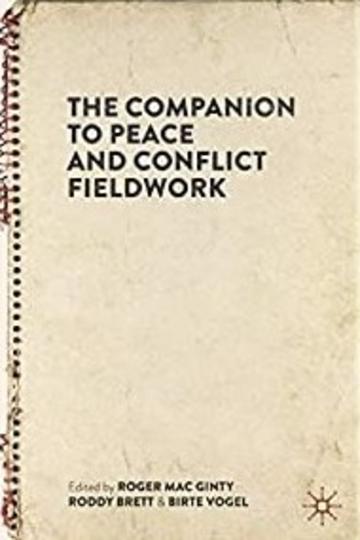***If you are already on our LAC mailing list you will receive the event link by email - there is no need to contact us***
If you would like to join the LAC mailing list, or would just like the link for this event, please email elvira.ryan@lac.ox.ac.uk
The deadline to register is 19 February at 12 noon
Convener(s): Francesca Lessa, Maryhen Jimenez Morales and Andreza de Souza Santos
Speaker: Roddy Brett, University of Bristol

In the aftermath of formal peace negotiations and which often consecrate a wide array of provisions oriented towards overcoming intergroup antagonism, post-accord co-existence habitually remains begrudging. Civilians face ‘no war, no peace’ contexts: they are subject to ongoing direct and indirect violence, and habitually experience the present and imagine the future through the societal cleavages that may have driven the onset of past violence or become hardened as a result of it. In such circumstances, ‘peace’ tends not to reach conflict-affected communities quickly, if at all. The legacy of political violence does not end then with the last death, and societal beliefs change slowly, particularly when powerful groups instrumentalize historical societal cleavages or publicly oppose post-accord narratives of inclusion and peace agreement provisions that seek to transform the historical status quo. Carrying out research in societies affected by violence and its lived legacies brings significant challenges. Addressing the specific case of Guatemala, this paper addresses several core ethical questions shaping peace and conflict research and frames the discussion within broader debates on reconciliation.
Roddy Brett is Associate Professor of Politics and International Relations in the School of Sociology, Politics and International Studies (SPAIS) at the University of Bristol. Before this, Professor Brett was a Senior Lecturer in International Relations at the University of St. Andrews, Director of the Masters Programme in Peace and Conflict Studies and Director of the Centre for Peace and Conflict Studies. His fields of research include conflict, peace processes/peacebuilding, genocide and transitional justice. During thirteen years living in Latin America, he acted as Advisor to the UNDP and the UNHCHR and as Advisor on Indigenous Affairs to the Norwegian Embassy in Guatemala. He worked with the Centre for Human Rights Legal Action in Guatemala, as a member of the original team that prepared the evidence against former dictator General Ríos Montt, leading to his conviction in May 2013 for eighty years for genocide and crimes against humanity. In 2015, he led a UN investigation into the role of the delegations of victims in the Santos-FACRC-EP peace process. His most recent books are The Palgrave Companion to Peace and Conflict Fieldwork (co-editor with Roger Mac Ginty and Birte Vogel). Palgrave Mac Millan (2020), The Politics of Victimhood in Post-Conflict Societies: comparative and analytical perspectives (2018) and The Origins and Dynamics of Genocide: Political Violence in Guatemala (2016). He will publish The Path Towards Reconciliation after Colombia’s War: understanding the roles of victims and perpetrators in 2021 with the University of Pennsylvania Press (Studies in Human Rights).